As the crescent moon signals the beginning of Ramadan in 2024 (expected around March 11th March in Europe and the US), Muslims around the world prepare for a month of spiritual rejuvenation and physical restraint through fasting. While the focus remains on prayer and reflection, nourishing your body during this holy month is equally crucial. This comprehensive guide aims to equip you with a practical Ramadan diet plan, taking into account the unique food cultures and dietary needs of Muslims residing in Europe and the United States.
Understanding the Importance of a Ramadan Diet:
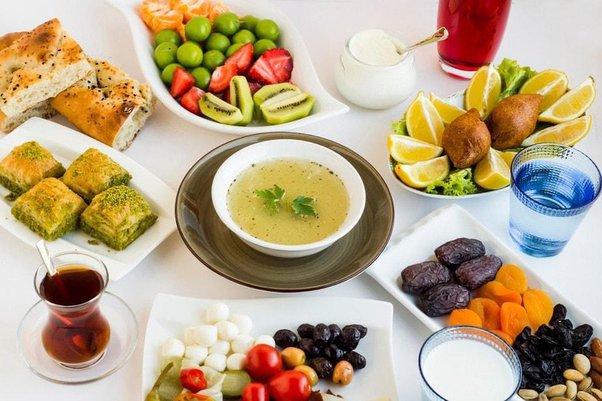
Fasting during Ramadan involves abstaining from food and drink from dawn to dusk. This significant shift in eating patterns requires a well-planned diet to ensure your body receives the necessary nutrients for sustained energy, optimal health, and spiritual focus. A balanced Ramadan diet plan goes beyond simply breaking the fast; it encompasses both Suhoor (the pre-dawn meal) and Iftar (the evening meal) to promote well-being throughout the day.
Preparing for the Fast: The Power of Suhoor
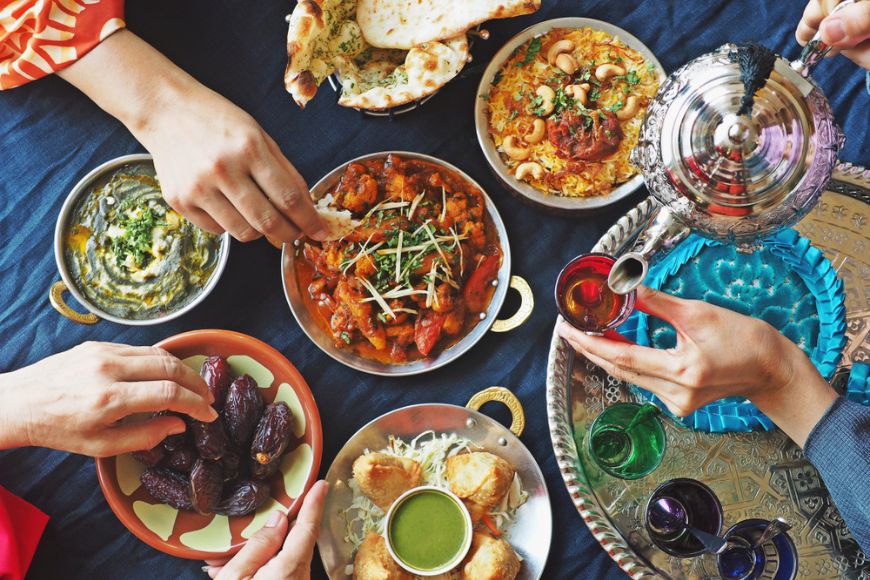
Suhoor, the pre-dawn meal, is often referred to as the “champion’s breakfast” during Ramadan. It sets the stage for your entire day, influencing your energy levels, focus, and overall well-being. Here’s how to optimize your Suhoor for a fulfilling day:
- Prioritizing Complex Carbohydrates: Complex carbohydrates are the unsung heroes of Suhoor. They provide sustained energy release, preventing the dreaded energy crashes that can occur later in the day. In Europe, consider whole-wheat bread, brown rice porridge with nuts and seeds, or rolled oats with chopped fruit and yogurt. In the US, whole-wheat pancakes drizzled with honey and berries, oatmeal with chia seeds and chopped nuts, or sweet potato with a dollop of Greek yogurt are great options.
- Protein Powerhouse: Including a source of lean protein in Suhoor is vital for maintaining satiety and preventing muscle breakdown during the fast. Opt for grilled chicken breast, scrambled eggs with chopped vegetables (Europe), or Greek yogurt with berries and granola (US). Lentil soup, a staple in many European cuisines, provides both protein and complex carbohydrates for a well-rounded meal. For those in the US, black bean burgers or tofu scramble can be healthy alternatives.
- Hydration Heroes: Dehydration can be a significant concern during Ramadan, especially during the warmer months. Ensure proper hydration throughout Suhoor by consuming plenty of water. You can also include hydrating foods like cucumber slices, watermelon, or yogurt drinks (Europe) or milk (US).
Breaking the Fast Wisely: Navigating Iftar
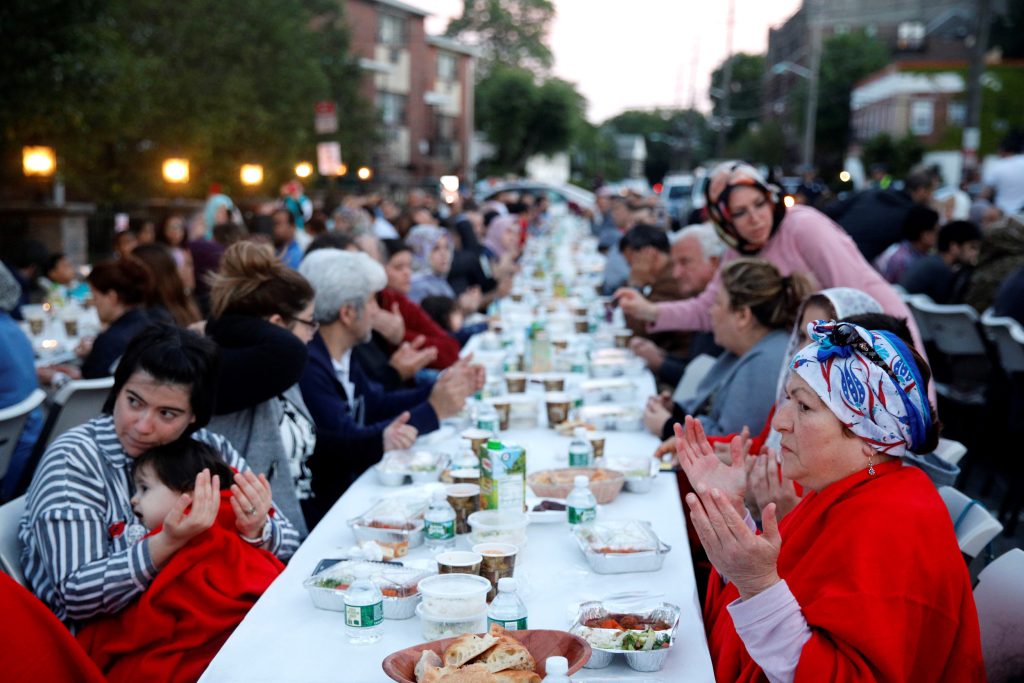
Iftar, the evening meal after sunset, is a time for celebration and delicious food shared with loved ones. However, it’s crucial to break the fast with intention and moderation to avoid digestive discomfort and overeating.
- The Gentle Start: Begin your Iftar with dates or a piece of fruit, a tradition followed by Muslims worldwide. Dates are rich in natural sugars, providing a gentle energy boost and aiding in rehydration. In Europe, a light soup like lentil or vegetable minestrone can further ease digestion. In the US, consider a small portion of fruit salad or a bowl of minestrone soup.
- Balanced Main Course: The main course of your Iftar should be a well-balanced combination of lean protein and complex carbohydrates for sustained energy.
- European Delights: Baked or grilled fish with roasted vegetables drizzled with olive oil and herbs, a chickpea curry with brown rice, or a flavorful vegetarian moussaka are fantastic options.
- American Favorites: Baked chicken or turkey breast with quinoa and roasted vegetables, lentil stew with whole-wheat bread, or a vegetarian chili with brown rice are nutritious and satisfying choices. Consider incorporating regional ingredients you enjoy. For instance, Europeans might favor creamy mushroom risotto, while Americans might prefer a turkey chili with cornbread.
Sweet Endings: While indulging in some sweetness is a welcome part of the Iftar tradition, remember moderation is key. Enjoy a small portion of dates, baklava (a popular dessert in Europe), or fruit salad (US). Opt for homemade versions using natural sweeteners like honey or dates to control sugar intake.
Staying Hydrated Throughout the Day:

Maintaining proper hydration is vital throughout Ramadan, even on fasting days. Here are some tips to ensure you stay adequately hydrated:
- Water is King: Water remains the cornerstone of hydration. Carry a reusable water bottle and sip on water regularly throughout the day, particularly before Suhoor and during pre-dawn hours when thirst can be most pronounced.
- Flavor Boosters: Liven up plain water by adding slices of cucumber, lemon, or mint for a refreshing twist. This adds a touch of flavor and encourages you to drink more.
- Herbal Tea Time: Enjoying unsweetened herbal teas like peppermint, chamomile, or ginger throughout the day (both regions) can be a delightful way to stay hydrated and potentially aid digestion. Be mindful of the caffeine content in some herbal teas, especially close to Suhoor when it might disrupt sleep.
Tailoring Your Ramadan Diet Plan:
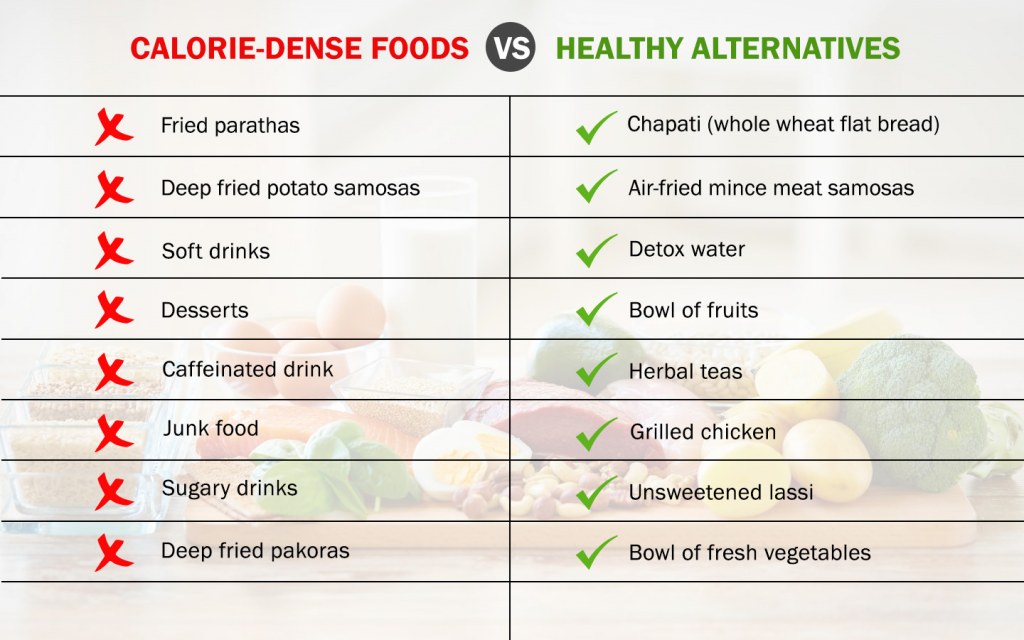
While the core principles of a healthy Ramadan diet remain consistent, here are some points to consider for personalization:
- Regional Variations: Embrace the diverse culinary landscape of Europe and the US. Europeans might enjoy yogurt with berries and granola for Suhoor, while Americans might prefer cottage cheese with chopped fruit. Explore regional ingredients and traditional dishes that fit within the framework of a balanced Ramadan diet.
- Dietary Needs: For those with specific dietary restrictions, such as gluten intolerance, diabetes, or lactose intolerance, consulting a registered dietitian or healthcare professional is crucial. They can help create a personalized Ramadan diet plan that addresses your unique needs and ensures you receive the necessary nutrients during the fast.
- Food Allergies: Be mindful of any food allergies or sensitivities you may have. Opt for alternative ingredients in recipes to avoid potential discomfort during Ramadan.
Additional Considerations for a Fulfilling Ramadan:
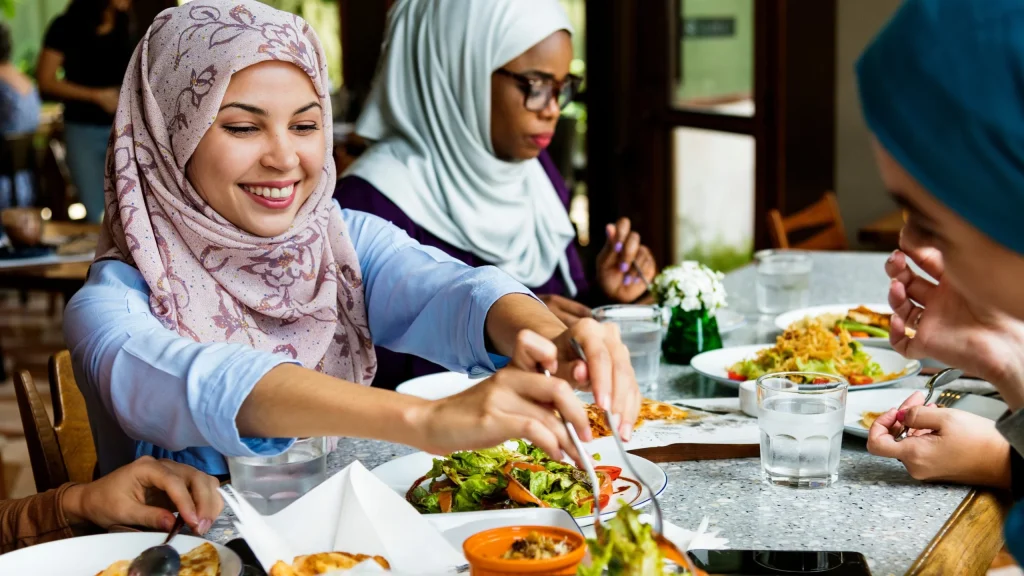
- Listen to Your Body: Pay attention to your body’s hunger cues. Breaking your fast slowly with smaller portions is essential to avoid digestive issues. Adjust portion sizes throughout the month based on your individual needs and activity level.
- Limit Fried Foods & Sugary Drinks: Fried foods and sugary drinks can lead to digestive discomfort, energy crashes, and contribute to dehydration. Opt for healthier alternatives like grilled or baked dishes and limit sugary drinks like soda and commercially prepared juices.
- Maintain Physical Activity: While intense exercise is not recommended during fasting hours, gentle physical activity like walking or light yoga can help with digestion, circulation, and overall well-being. Engage in these activities after Iftar or during permitted hours.
- Prioritize Sleep: Adequate sleep is crucial during Ramadan. Aim for 7-8 hours of sleep each night to maintain energy levels and promote overall well-being.
A Nourishing Ramadan for Body and Soul

By following these practical tips and personalizing your Ramadan diet plan, you can ensure your body receives the necessary nutrients to sustain you throughout the holy month. Remember, Ramadan is a time for spiritual growth and reflection. A balanced diet, coupled with mindful eating habits, empowers you to maintain your physical well-being while focusing on your spiritual journey. Embrace the opportunity to connect with loved ones over healthy meals and celebrate the spirit of Ramadan with a nourished body and a centered soul.






GIPHY App Key not set. Please check settings